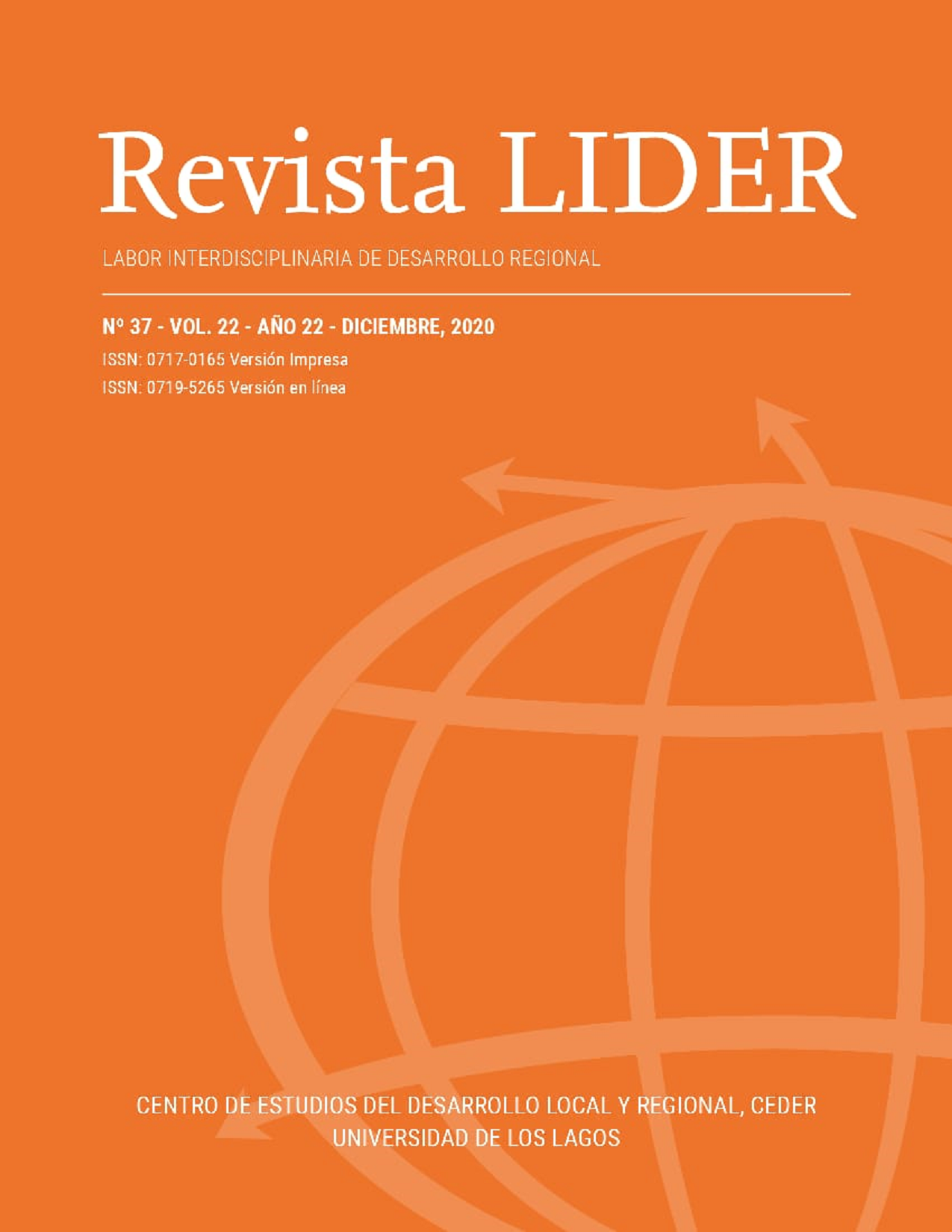Socio-technical agent-assemblies and adoption of electric transmission technologies in companies of the City of Osorno, Chile
Main Article Content
Abstract
The process of adoption of transport technologies based on electricity is understood as a complex framework of technical, economic, regulatory, financial and socio-cultural aspects. The objective of this paper is to identify agents, interests, enrollments and specific socio-technical devices that are deployed within the framework of the adoption process of transport technologies based on electric energy, from a systemic and territorial perspective. It was a descriptive study with a qualitative approach, for which secondary information was reviewed and 21 semi-structured interviews were applied to intentionally selected key informants. It was possible to verify the emergence of at least 3 empirical dimensions, in which the deployment of devices, controversies and socio-technical arrangements can be observed: financial-commercial, public-private policies and regulatory and scientific-technological framework. This led to the conclusion that a socio-technical perspective with a systemic and territorial approach allows us to find new mechanisms of agency that influence the process of technology adoption and also allowed to advance a proposal for a socio-technical model of a systemic nature, with the aim to develop research and intervention at the territorial level, and thus make a contribution to the design and implementation of public policies and private investments against climate change.
Article Details
Downloads

This work is licensed under a Creative Commons Attribution-NonCommercial-ShareAlike 4.0 International License.
